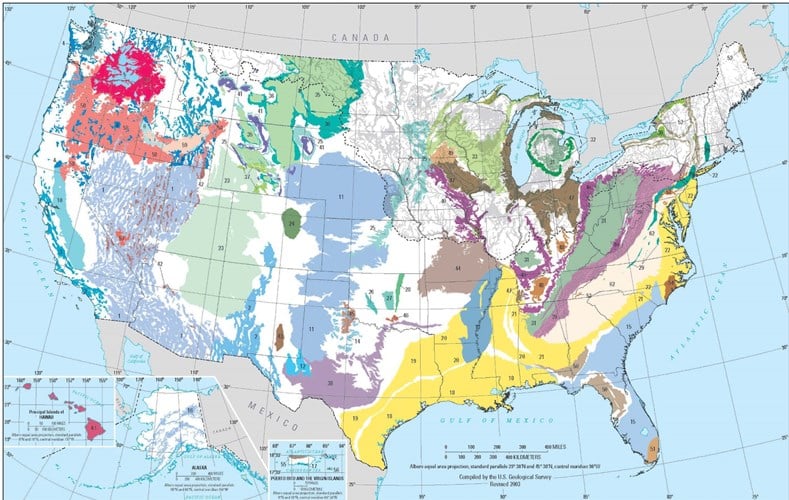The CUR Geosciences Division announced the 2021 awardees for excellence in student research:
- Zoe Lacey (Trinity University, San Antonio)
- Hanna Szydlowski (Grand Valley State University, Allendale, MI)
Starting in spring 2020, Zoe Lacey (Class of 2021, Trinity University) developed a reactive transport model to describe the biogeochemical controls on the mobility of trace elements in an aquifer contaminated by crude oil. Lacey created a new model framework for describing how carbonate minerals can adsorb trace elements in aquifer environments, demonstrating ingenuity, perseverance, sophisticated knowledge of (bio)geochemistry, and advanced coding skills. Her results are applicable to thousands of aquifers contaminated by organic carbon and suggest novel geochemical approaches for remediating trace elements in groundwater. Her research is reflected in a senior thesis that will be submitted to a peer-reviewed journal for publication. Lacey presented her research at the South-Central Geological Society of America Meeting.
Hanna Szydlowski is a third-year student in geochemistry at Grand Valley State University (GVSU). Szydlowski’s research project tested multiple hypotheses of groundwater aquifer size and travel time using stable isotopes. She monitored groundwater levels and gradients, and stream stage in three small spring-fed streams in Michigan, collecting weekly water samples of precipitation and small spring-fed streams for one year. She then analyzed the data to test two alternative hypotheses of aquifer size, travel time, and mixing rates. Szydlowski presented her research at the 2020 online Annual Meeting of the Geological Society of America, winning an award for best undergraduate poster from the Hydrogeology Division.
CUR’s Geosciences Division (GeoCUR) gives annual awards to full-time undergraduate students currently enrolled in a two-year or four-year educational institution engaging in research emphasizing the geosciences such as geology, oceanography, and atmospheric sciences.
Founded in 1978, the Council on Undergraduate Research (CUR) focuses on providing high-quality and collaborative undergraduate research, scholarly, and creative activity. Among the many activities and networking opportunities that CUR provides, the organization also offers support for the professional growth of faculty and administrators through expert-designed institutes, conferences, and a wide-range of volunteer positions. The CUR community, made up of nearly 700 institutions and 13,000 individuals, continues to provide a platform for discussion and other resources related to mentoring, connecting, and creating relationships centered around undergraduate research. CUR’s advocacy efforts are also a large portion of its work as they strive to strengthen support for undergraduate research. Its continued growth in connections with representatives, private foundations, government agencies, and campuses world-wide provides value to its members and gives voice to undergraduate research. CUR is committed to inclusivity and diversity in all of its activities and our community.
CUR focuses on giving a voice to undergraduate research with learning through doing. It provides connections to a multitude of campuses and government agencies, all while promoting networking and professional growth to its community.


